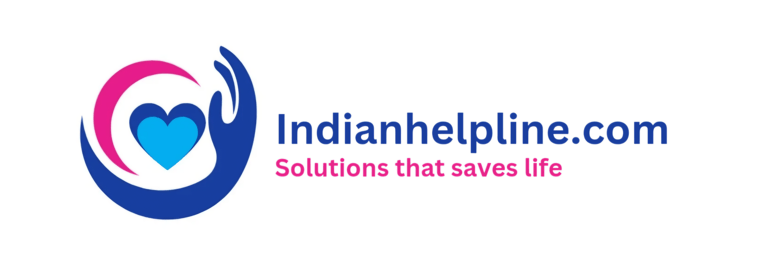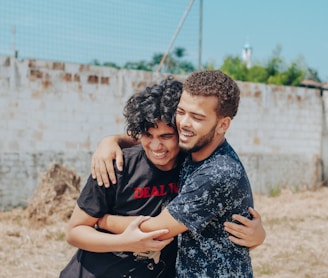The Power of Hugs and its Health Benefits
Hugs matters! One hug from the right person takes all your stress away!
Are you a hug or a handshake kind of person? If you’re the latter, you might want to reconsider the power a hug can have on your health. We hug others when we’re excited, happy, sad, or even trying to comfort! Hugging is universally comforting and it makes us feel good. It turns out that hugging is proven to make us healthier, hastier and happier. We all know hugs can be so consoling during hard times, and then why not start making it a regular part of your day?
Your skin is your body's largest organ. It is also the fastest growing; it regenerates at an amazing rate—you sport a new coat of skin every month. Skin acts as our body’s defence against the external world, as well as our brain’s collector of external data. Skin contact is essential for our overall well-being. Stress causes our bodies to produce cortisol, which increases the likelihood that new social alliances can develop. Oxytocin production swells up when we are touched by another caring human. Our bodies are made to provide and respond to physical comfort, so next time you see someone in pain or feel as if the world is crumbling around you, open up to a hug.
The healing process begins with a touch and embrace. It’s just that simple.
Benefits of Hugs:
1. Hugs reduces stress by showing your support
When a friend or family member is dealing with something painful or unpleasant in their lives, give them a hug. Giving another person support through touch can reduce the stress of the person being comforted. It can even reduce the stress of the person doing the comforting.
2. Hugs may protect you against illnesses
The stress-reducing effects of hugging might also work to keep you healthier. Hugging may reduce the chance that a person will get sick. The participants with a greater support system were less likely to get sick. Those with the greater support system who did get sick had less severe symptoms than those with little or no support system.
3. Hugs may boost your heart health: an affectionate relationship may be good for you heart health.
4. Hugs can make you happier
Oxytocin is a chemical in our bodies that scientists sometimes call the “cuddle hormone.” This is because its levels rise when we hug, touch, or sit close to someone else. Oxytocin is associated with happiness and less stress. Oxytocin causes a reduction in blood pressure and of the stress hormone norepinephrine.
5. Hugs help reduce your fears
Touch can reduce anxiety in people with low self-esteem. Touch can also keep people from isolating themselves when reminded of their mortality.
6. Hugs may help reduce your pain
Touch may be capable of reducing pain. Hugging is another form of touch that may help reduce pain.
7. Hugs help you communicate with others
Most human communication occurs verbally or through facial expressions. But touch is another important way that people can send messages to one another.
A stranger was capable of expressing a wide range of emotions to another person by touching different parts of their body. Some emotions expressed include anger, fear, disgust, love, gratitude, happiness, sadness, and sympathy.
Hugging is a very comforting and communicative type of touch.
How many hugs do we need?
We need four hugs a day for survival. We need 8 hugs a day for maintenance. We need 12 hugs a day for growth. While that may sound like a lot of hugs, it seems that many hugs are better than not enough.
How many hugs should you have a day for optimal health? We should have as many as possible if we want to reap the greatest positive effects. So, if you want to feel better about yourself, reduce your stress, improve communication, and be happier and healthier, it seems that giving and asking for more hugs is always a good place to start.
If you feel nervous about seeking out more hugs, start by asking for them from friends and family members closest to you first.
Hugging benefits the giver and receiver.
It takes two or more to hug it out. Often, we embrace or hold our children when they’re in need of comfort. But as it turns out, this little act of love can also offer stress reducing benefits for the giver. Comforting touch, like hugs, may be beneficial not only for the receiver but also for the giver. It is a two way street!
How to Give a Good Hug
Hug someone for at least 20 seconds – don’t be wimpy or weak about it – make it a good bear hug to show how much you care!
Provide the “Heart to Heart Hug”: Raise your left arm up to wrap it over the upper right shoulder of your hugging partner, leaving your right arm low to wrap around his or her midsection just below his or her left arm.
Hugging is an intimate gesture to bring two people together. The person receiving the hug gets a silent message from the hugger: You matter to me, you are not alone, and I’m here. The emotional impact of this small act can make all the difference in the world to a family caregiver who is experiencing sadness, depression, fear and anxiety.
The emotional uplift, there is a positive physical impact as well. When hugged, we receive a jolt of oxytocin – known as the “love or cuddle” hormone. This hormonal surge helps us bond with the
person we are hugging. There is a transfer of positive energy from one human to the other and we feel safer and supported.
Hugs Protect Our Brains
Eight hugs a day to receive the adequate amount of oxytocin and other hormonal release that provide a neuro protective effect for brain health is needed. In addition to human to human contact, we can receive the same plethora of health benefits from hugging a pet. It is one of the reasons why pet therapy is so powerful and impactful in our senior population and even helping to calm agitated or wandering dementia patients.
The best part of hugging is that it is a non-pharmacological, non-invasive, universal expression of love and care. And it’s the gift that gives back because we cannot hug someone without getting the same reaction we provide! Hugs are where both parties benefit in the emotional and physical healthy feelings.
Just a simple hug can be very powerful. It has the ability to reduce the stress, cure sadness and heals any wound.
Article by Trishna Patnaik, a BSc (in Life Sciences) and MBA (in Marketing) by qualification but an artist by choice. Mumbai


